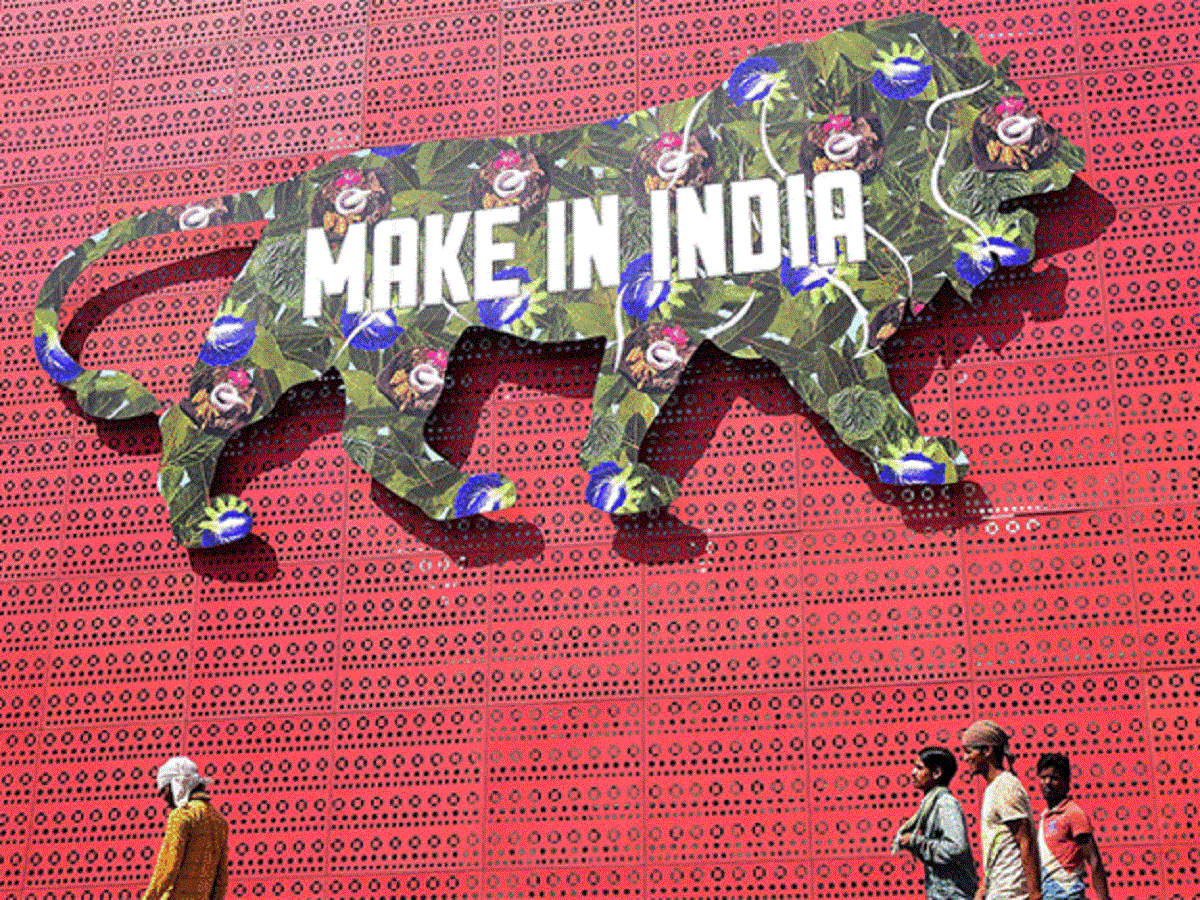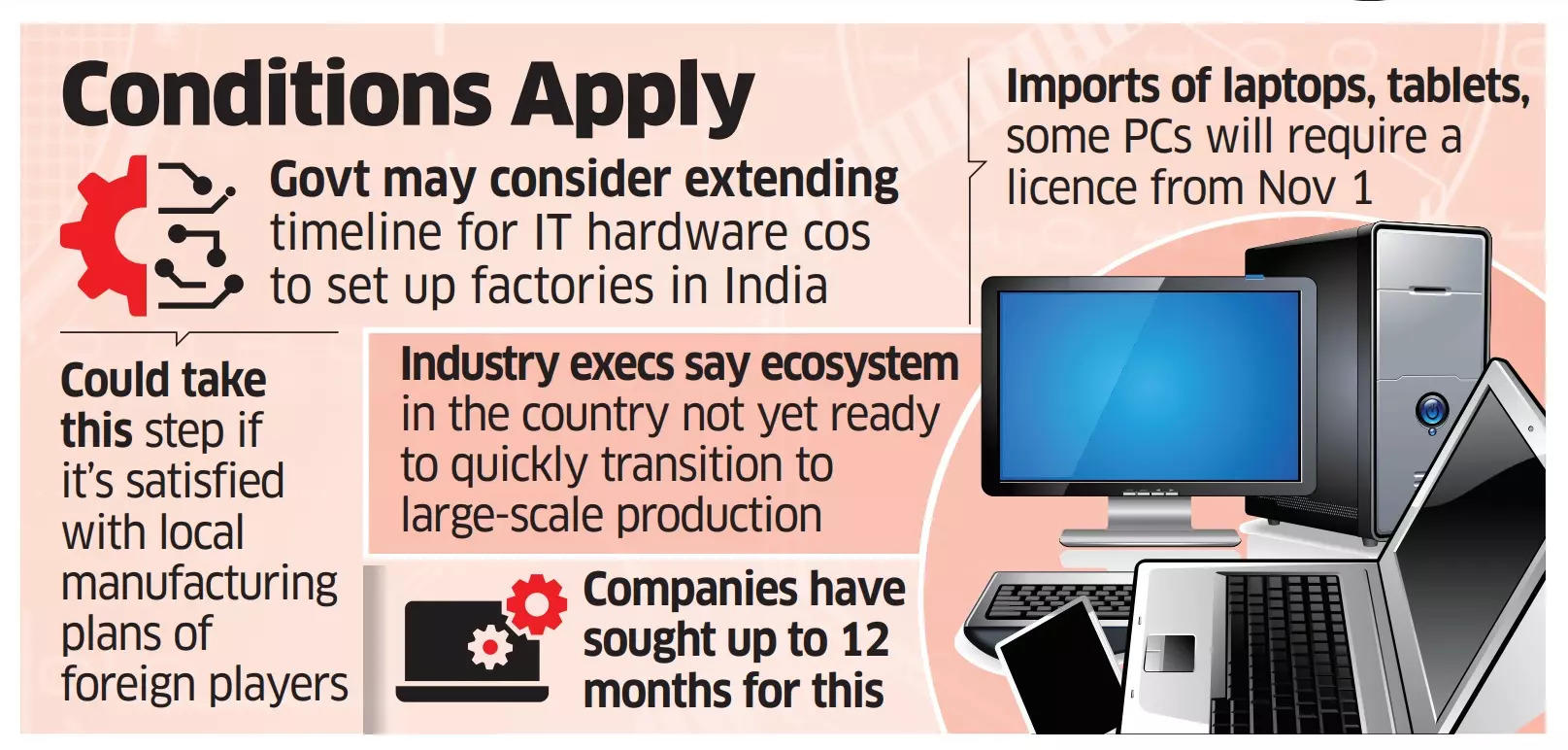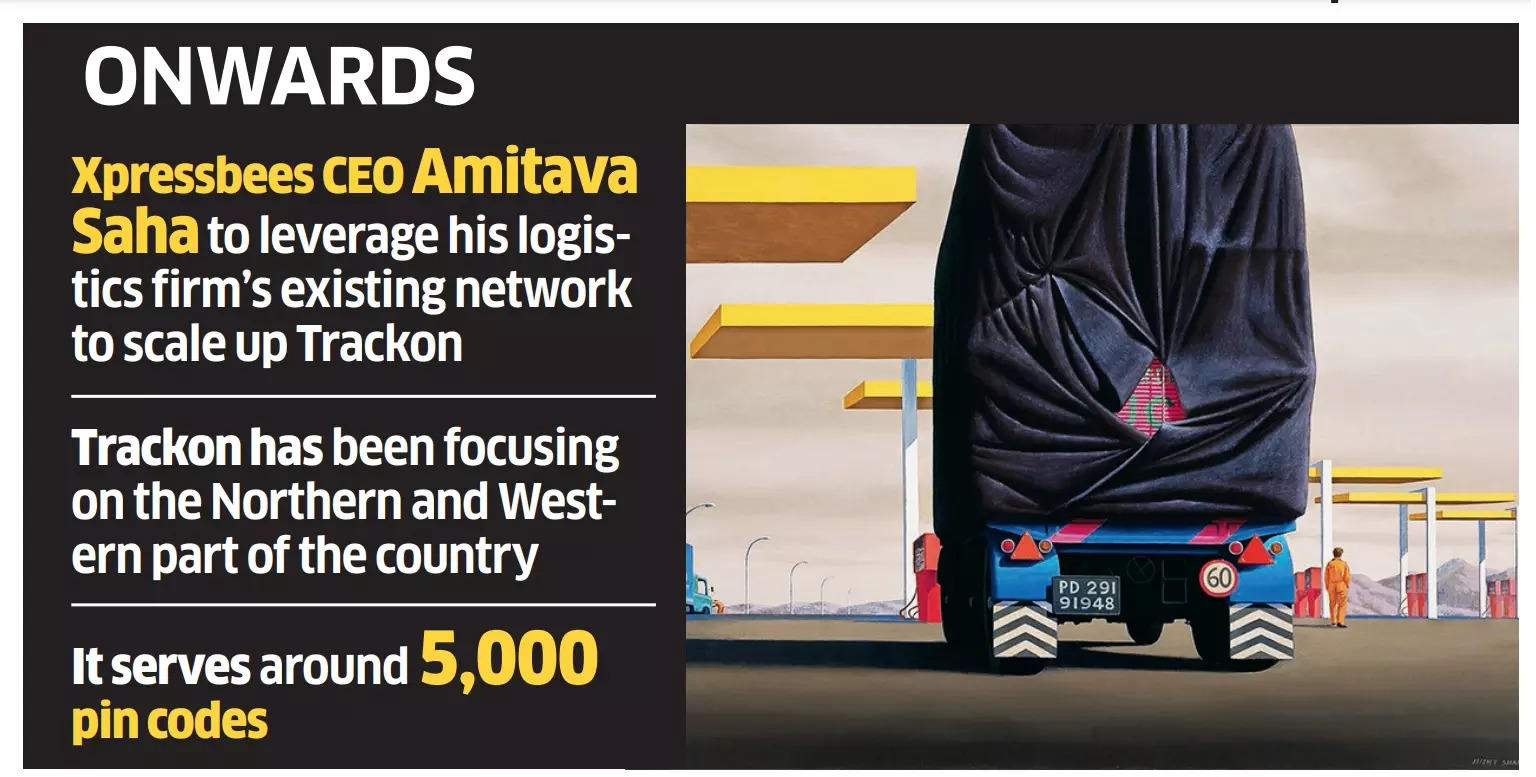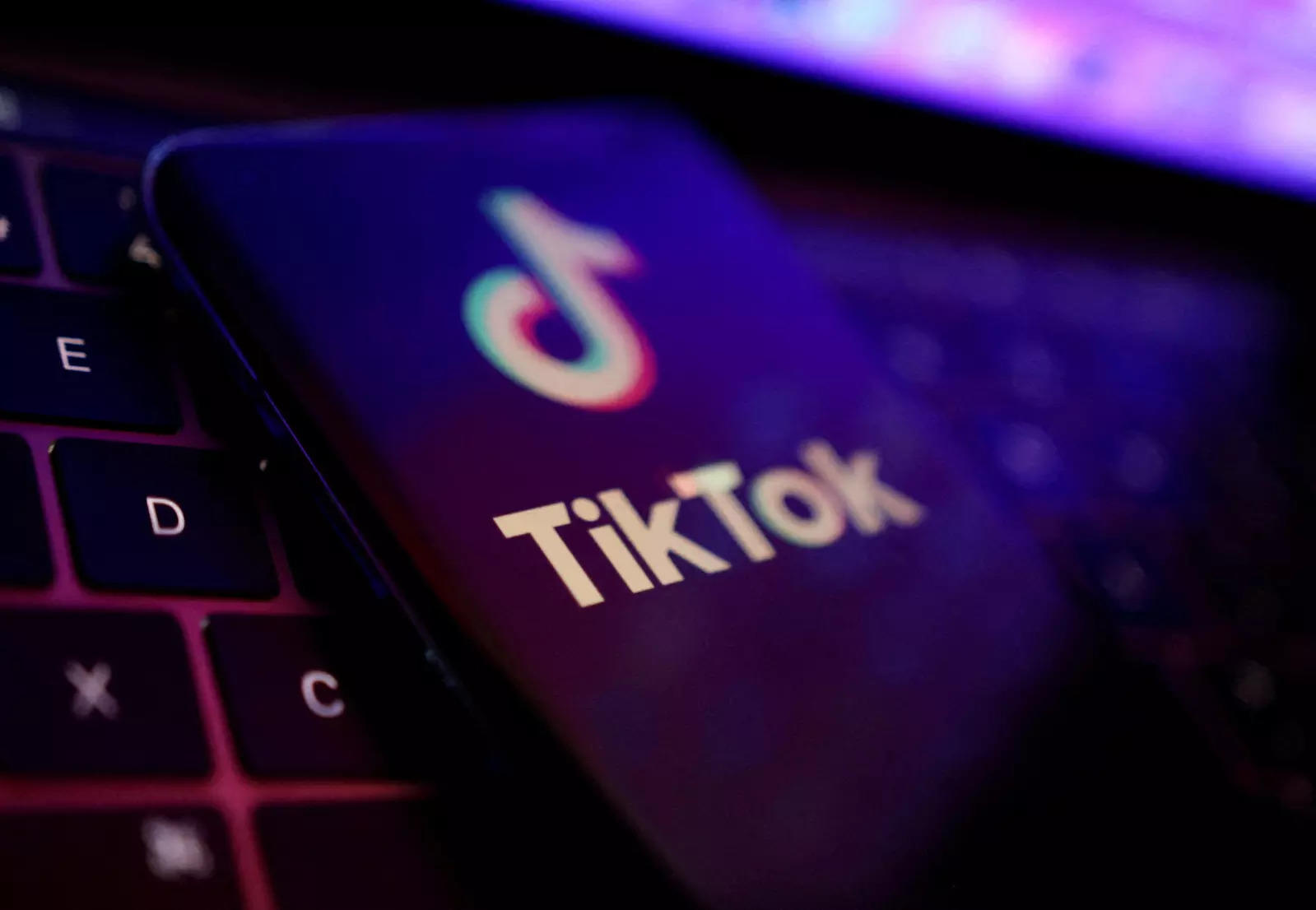Also in the letter:
■ Xpressbees acquires Trackon in all-cash deal
■ TikTok owner bets on Resso & Lark for a Byte of India market
■ Global captives pip IT in hiring in a first in 3 years
Programming note: The ETtech newsletter team will be taking a short break on the occasion of Independence Day. Morning Dispatch will be back on Wednesday morning, August 16. Stay tuned to ETtech.com for all the news and updates.
Exclusive: Manipal Group’s Ranjan Pai in talks for stake in FirstCry

Hi! Digbijay here in Bengaluru. We have a Monday morning scoop for you. Ranjan Pai, chairman of Manipal Group, is very close to picking up a stake in ecommerce firm FirstCry, sources told us. Let’s dive in:
Pai’s FirstCry pie: Pai is in an advanced stage of talks to invest around Rs 250 crore in FirstCry, as part of a bigger secondary share sale. Besides Pai, other institutional investors are also likely to participate in what could be a nearly Rs 500 crore share sale.

Tell me more: Pai’s investment in FirstCry is estimated to be taking place at a valuation of around $3 billion. ET had reported in April that FirstCry had engaged with sovereign funds for a secondary share sale where investors like SoftBank would part-sell their stake in the online retailer.
Ahead of IPO: The development comes ahead of Pune-based FirstCry’s preparations for going public next year. Last week, SoftBank’s Navneet Govil told us in an interview that FirstCry is looking to file its draft IPO papers before the end of 2023.
Jargon buster: In a secondary share sale, existing investors sell their shares to new investors in part or full. Thus, the money does not go into company coffers.
Local ownership: FirstCry’s efforts to bring in more local investors are linked to its goal of diluting the shareholding of foreign investors. It wants to do the same before filing for an IPO.
Foreign electronics firms could get more time to set up shop in India

The government may allow some time for overseas companies to set up shop in India, provided they submit a detailed roadmap of their local manufacturing plans for products such as laptops, personal computers and servers, a senior government official told ET.
This comes a week after the government restricted the import of electronic items such as laptops, tablets, all-in-one-PCs, ultra-small factor computers and servers.
Leeway for companies: If the government is satisfied with the companies’ plans, it may provide some relaxation on licensing norms for the import of electronic items. “The idea is to encourage the Apples, Dells and HPs of the world and others to start their production in India and not just be present through contract manufacturing or white labels,” the official said.

Government’s motivation: India imported IT hardware products worth $8.8 billion in FY23, with China accounting for more than half that figure at $5.1 billion, followed by $1.3 billion from Singapore. The government expects import licensing to encourage local manufacturing with the production-linked incentive (PLI) scheme for IT hardware acting as a spur.
Word for word: “India already has well-established ecosystems for manufacture of several electronic items. Surely, these companies can look at harnessing some of them and starting production lines here,” an official said.
Industry pushback: The Directorate General of Foreign Trade (DGFT) issued a notification on August 3, curbing electronic imports in a push to ‘Make in India’. Companies importing these items would need to apply for an additional licence.
Industry executives believe the ecosystem in the country is not yet ready to quickly transition to manufacturing on the scale that’s required. ET reported on Friday that the Nasscom lobby group had asked the government to review the move as it will take a toll on India’s $245 billion IT sector, one of the largest consumers of electronic products.
Xpressbees acquires Trackon in all-cash deal

Amitava Saha, CEO, Xpressbees
Ecommerce-focussed logistics firm Xpressbees told ET that it has acquired New Delhi-based courier firm Trackon in an all-cash transaction, without disclosing the size of the deal. This move will help the Pune-based company enter the SME courier space.
Scaling up: Xpressbees hopes to leverage its existing network to scale up Trackon across the country and help it reach smaller cities and towns in eastern India. Trackon is currently focussed in the northern and western parts of the country, serving around 5,000 pin codes, while Xpressbees operates in around 15,000 pin codes.

Building tech: “Trackon is a Rs 350 crore revenue firm and with our scale and reach the combined strengths will help improve the bottomline of our firm as well,” Amitava Saha, chief executive of Xpressbees, told ET. There will be technology-led improvements for Trackon, going forward, he added.
Leadership retained: Prabhat Kumar Anand, founder and CMD of Trackon, will continue to lead the business for at least two years, and there will be no change to the firm’s brand identity as part of the acquisition. The other cofounders – Pramod Kumar Singh, Dinesh Rautela and Yoginder Kumar Dabas – have resigned and are moving on from the firm as part of the deal.
Financial details: The acquisition is being funded from the company’s existing cash balance, Saha said. Xpressbees was last valued at $1.1 billion, when the logistics startup raised $300 million, out of which $100 million was in primary capital, while the rest came from a secondary share sale.
TikTok owner bets on Resso & Lark for a Byte of India market

Three years after the union government banned its short-form video app TikTok, ByteDance is undeterred in making its mark in India. The Chinese internet giant is making inroads into the Indian market through its music streaming app Resso and ‘all-in-one’ productivity app Lark.
Largest market: Resso, which also operates in Brazil and Indonesia, counts India as its largest market. According to AppMagic, it has been downloaded over 125 million times in the country. Resso offers subscriptions starting at Rs 99 per month in India.
Meanwhile, Lark is slowly growing in India. Industry watchers estimate that it registers most of its downloads in China. It has over 10 lakh downloads on Play Store.
India’s internet market play: India is the world’s largest internet market after China, with close to 800 million users, and provides a huge opportunity for apps looking to bulk up operations. Resso and Lark are on the lower end of importance for ByteDance, contributing less than 5% to the company’s overall revenues in 2022, David Curry, data editor at Business of Apps, told ET.
“ByteDance and other Chinese companies are still very keen on working in the Indian market, despite some of their top apps being removed from app stores and banned,” Curry said.
Global captives pip IT in hiring in a first in 3 years

Global capability centres (GCCs) – or technology and engineering back-offices of large banking or retail multinationals in India – paced ahead in terms of recruitment as compared with IT companies in India for the first time in three years in the April-June quarter, data showed.
Details: The top seven IT companies in the country reduced their headcount by 22,000 during the quarter. Smaller IT companies hired in small numbers, mostly related to upcoming demand in the next 2-4 quarters, making overall IT hiring flat in the period. On the other hand, 40 major GCCs hired 25,000-28,000 during the quarter, data shared by specialist staffing firm Xpheno showed.

What’s driving this? While overall IT industry hiring has been flat amid lacklustre demand, GCCs continue to hire as they are mostly greenfield projects set up from scratch, industry insiders and experts said.
Other Top Stories By Our Reporters

How a complicated regulatory landscape is hurting startups selling products made from hemp: Hemp gets a bad rap due to its infamous cousin marijuana. They both belong to the cannabis sativa family. While marijuana plants are short and bushy with broad leaves, hemp is taller with thinner leaves that are concentrated at the top of the plant. But the crucial difference is in the quantum of a psychoactive compound called tetrahydrocannabinol (THC).
Digital wears Prada: As tech meets luxury, IT majors find a new ray of hope | The world’s top 100 luxury brands generated a revenue of more than $300 billion last year, and a growing number of these companies are spending big on technology — up to 2% of their revenues.
Data protection bill will be a ‘game changer’ for the country: RateGain Travel Tech’s Bhanu Chopra | India’s data protection bill will be a ‘game changer’ for the country as Indians are not used to caring a lot about sharing their data with third parties and fall prey to a lot of identity theft, said Bhanu Chopra, founder and chairman of NSE-listed RateGain Travel Technologies, in an interview to ET.
Global Picks We Are Reading
■ The ‘Godfather of AI’ has a hopeful plan for keeping future AI friendly (Wired)
■ Why US tech giants are threatening to quit the UK (BBC)
■ A core plank of the SaaS economic model is under extreme pressure (TechCrunch)
























